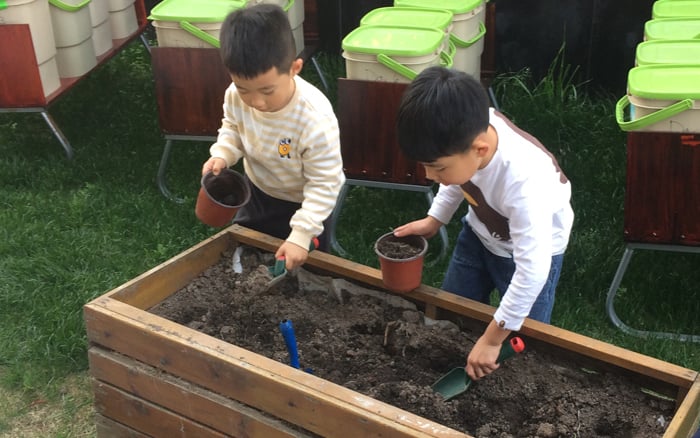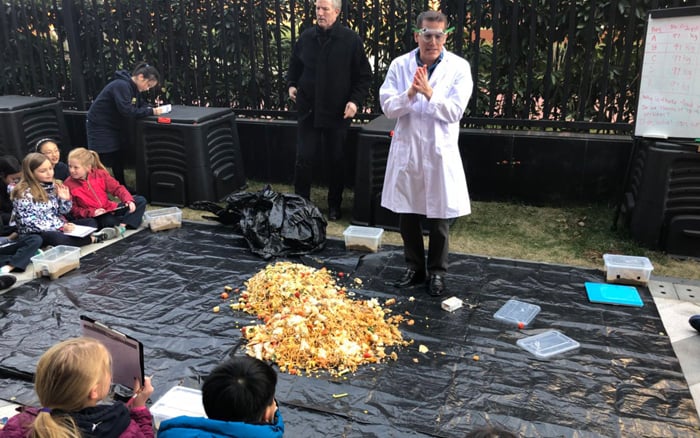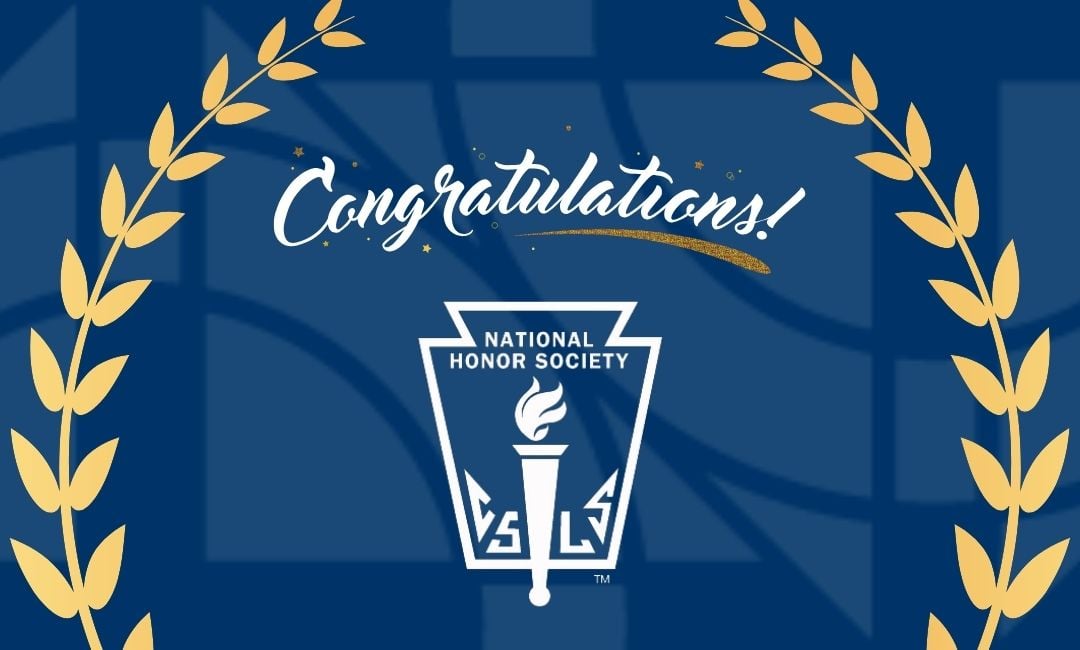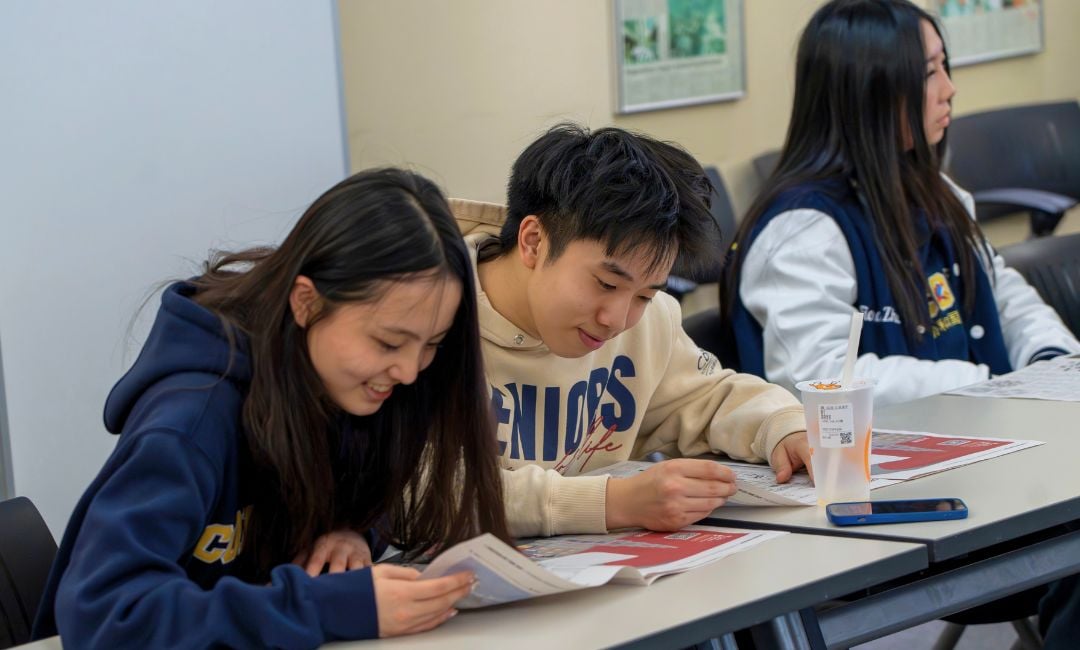Taking a different approach to teaching Concordia elementary school students about composting systems
Concordia teachers have a mission to “educate students holistically in a nurturing environment.” As we work together to unpack the terms “holistic” and “nurturing,” we have to consider the importance of creating meaningful learning opportunities that are fueled by student inquiry, especially those that take place outside the walls of the classroom. However, when you live in an urban environment such as Shanghai, it can be challenging to carve out authentic outdoor learning experiences for students.
Pondering ways in which to provide such opportunities at our school, I had a revelation while watching students participate in one of the most commonplace activities of the school day—lunch. From the doorway of my office, I see the comings and goings of our 400+ elementary school students as they gather in the cafeteria for this daily ritual. Observing them, I noticed that some students left whole trays of food untouched. While this is not all that unusual for young children, what made this an eye-opening observation was that this food was then bagged and thrown into the same trash receptacle as all the other waste. An immediate solution came to mind: Let’s compost!
My epiphany wasn’t exactly new terrain for our school—some of our teachers already had small composting systems for their classrooms. However, what if we were to tackle all of the food waste generated from elementary school lunch? It would be a huge project. And it would take time. Time to plan, time to collaborate, and time to create the necessary partnerships in order for a project of this scale to be successful. This is how the composting challenge at Concordia International School Shanghai was realized.
The challenge
“Create a composting system that provides authentic and meaningful learning opportunities for the Concordia community.”
STEP 1
Create a plan. We shared our observations with the Concordia High School Global Issues Network committee. Our GIN students then met with the school’s food service provider to determine just how much food waste was generated every day. Students compiled the data and presented it to Concordia’s Director of Operations, who we hoped would help us spearhead an initiative to radically change our current policy for dealing with food waste.
STEP 2
Find the right compost method. We discussed several types of composting systems, including vericomposting, which uses worms to help break down organic materials, but we needed a system that would be easy to maintain and efficient in terms of overall maintenance and time. Five elementary school teachers ventured to have their classes pilot an anaerobic composting system, which seemed most beneficial as it allowed their students an opportunity to become active participants in this process. From their research, we determined that this system was the preferred method of composting for our purposes. Again we enlisted GIN students to perform a data analysis to determine the number of systems that would be needed to handle our project.
STEP 3
Build a composting site. With the data in hand, we went back to our Director of Operations, who collaborated with us on the logistics of space and materials we’d need for housing our composting system. Then we set our middle school Maker Design students to work designing and building weatherproof shelving for our new anaerobic systems.
STEP 4
Close the loop. From all this data, we realized that we would be producing around 30kg of compost a day. But what to do with it? Enter 500jia, a local organic farm who agreed to come to campus once a month to transport the Concordia compost to a plot of farmland specifically designated for the school.
The outcomes
Not only have we started producing nutrient-rich compost, we have also cultivated rich and meaningful learning opportunities for our students that have had a real impact on the school. For instance, our Grade 4 students recently completed a service learning module based on the question, “Is food waste at school a problem? If so, what can be done about it?” The student inquiry generated from these questions led to a change in the serving spoon size that food servers use in the elementary school cafeteria. It also led to the formation of the Eco-Warriors, a club that helps with the composting and spreading awareness through food waste reduction campaigns.
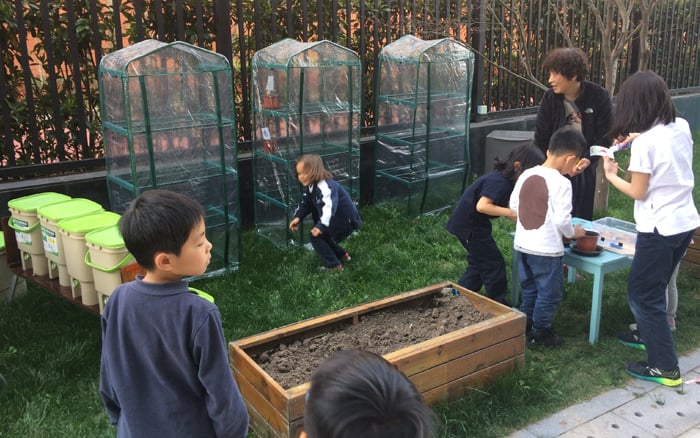
With our composting system now in place, we’ve expanded our context for outdoor learning, prototyping a community garden and art center. So far the composting space has brought together diverse groups of students and parents to dig in the dirt, plant vegetables and flowers, and create amazing artistic displays in our campus greenhouses. And we are excited to see what other impactful activities will continue to arise.
This project was not carried out by a single group. It required a strong collaborative effort that combined the skills and passions of students, faculty, school service administrators, and parents. Composting not only created an opportunity for learning and exploration it also created partnerships across divisions, across the community, and hopefully those partnerships will carry on further still as we connect with other institutions and find even more innovative ways to continue to grow and refine Concordia’s composting project.
